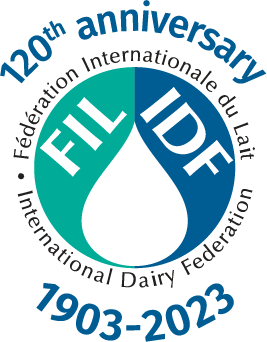

With 2 billion persons malnourished around the world, it is not only a question of producing the right quantity of food but more importantly quality food. Nutrient-dense foods like milk and dairy products are key to alleviating all forms of malnutrition around our world.
Over the last past months, the dairy sector worldwide has shown its resilience in ensuring that milk and dairy products continued to be provided without interruption. These challenging times offer opportunities to strengthen good existing practices but as well to innovate, improve and be better equipped for the future. How can we become more efficient and agile? How can we ensure no one is left behind, and especially not those who ‘grow, nourish and sustain’ our food systems, our farmers and food processors?
Building resilient food systems
Food system resilience is being defined as the capacity overtime of a food system to provide sufficient, appropriate, and accessible food to all, in the face of various and even unforeseen disturbances.
As we discuss how food systems can continue to improve going forward, organizations and governments must juggle with a myriad of issues to ensure adequate nutrition produced in a sustainable manner. Providing a growing world population with safe, sustainable, and nutritious food is our global challenge. To succeed we need all actors of the food chain to work together. We need a diversity of food products. We need a variety of production systems adapted to geographical needs and realities. We need innovation and investment.
As the UN Framework Convention on Climate Change Article 2 reminds us, one should not forget that food security is crucial (SDG 1 is Zero Hunger) and food production should not be endangered. Improving agriculture and food production in a realistic and sustainable manner is therefore where we should focus our efforts.
When considering resilient food systems, we must therefore make an accurate assessment of sustainability impacts. A true assessment will show impacts on the four aspects of sustainability – social, economic, environmental and nutrition. We cannot ignore affordability, land and water capacities, diversity of ecosystems and socio-economic contributions. Neither can we disregard the economy and culture.
Furthermore, assessments must be based on realistic expectations and balance. Trade-offs will occur, as all food production incurs varying environmental “impacts”, but it is important to consider those impacts in the context of the nutritional “dividends” provided by the food. With 2 billion persons malnourished around the world, it is not only a question of producing the right quantity of food. Quality matters: nutrient-dense food must be made available to alleviate all forms of malnutrition.
In making their assessments, regulators and policymakers also need to assess the various levels of achievements they want and make realistic assumptions for i) what is practice ii) what is possible And finally, ii) what is optimal?
The important contribution of dairy
Milk and dairy food consumption are a crucial part of the recipe to transition food systems and to achieving the SDG 2030 agenda, for multiple reasons:
- Dairy contributes to health and wellness: The dairy sector helps to feed the world delivering vital nutrition in the form of high-quality protein and essential vitamins and minerals. Globally, dairy provides 5% of energy, 10% of protein and 9% of fat in the diet, as well as providing vital nutrients like calcium, iodine, B vitamins, zinc, and phosphorus.
- Dairy helps reduce poverty and ensure nutritional security: Livestock contribute to the livelihoods and nutritional security of millions of farmers (430 million out of 729 million people in rural and marginal areas are livestock farmers). Dairy animals also increase the financial capital of families, provide a mechanism for savings, and serve as liquid assets, or as credit collateral for securing livelihood goals.
- Dairy safeguarding our environment: Global dairy production is part of our essential critical infrastructure. It is largely underappreciated that nearly 70% of the land globally on which animals graze is not suitable for edible plant growth. Without dairy animals inhabiting and grazing this land and transforming grass, by-products, and inedible plants into nutritious milk, a pasture that is highly productive would become unproductive grassland, and land degradation and biodiversity losses may occur. Dairy farmers are the guardians of the earth, managing land and biodiversity.
- Dairy as part of world culture: Dairy is a staple food with traditions deeply woven into societies all around the world. The versatility and affordability of milk and dairy products allow for varied use and incorporation into various dietary patterns and across different cultures.
As acknowledged by the FAO, our actions are our future. On World Food Day, let’s thank dairy farmers and employees in the food chain for their work and commend the contribution of dairy to nourishing the world in a safe and sustainable manner.






